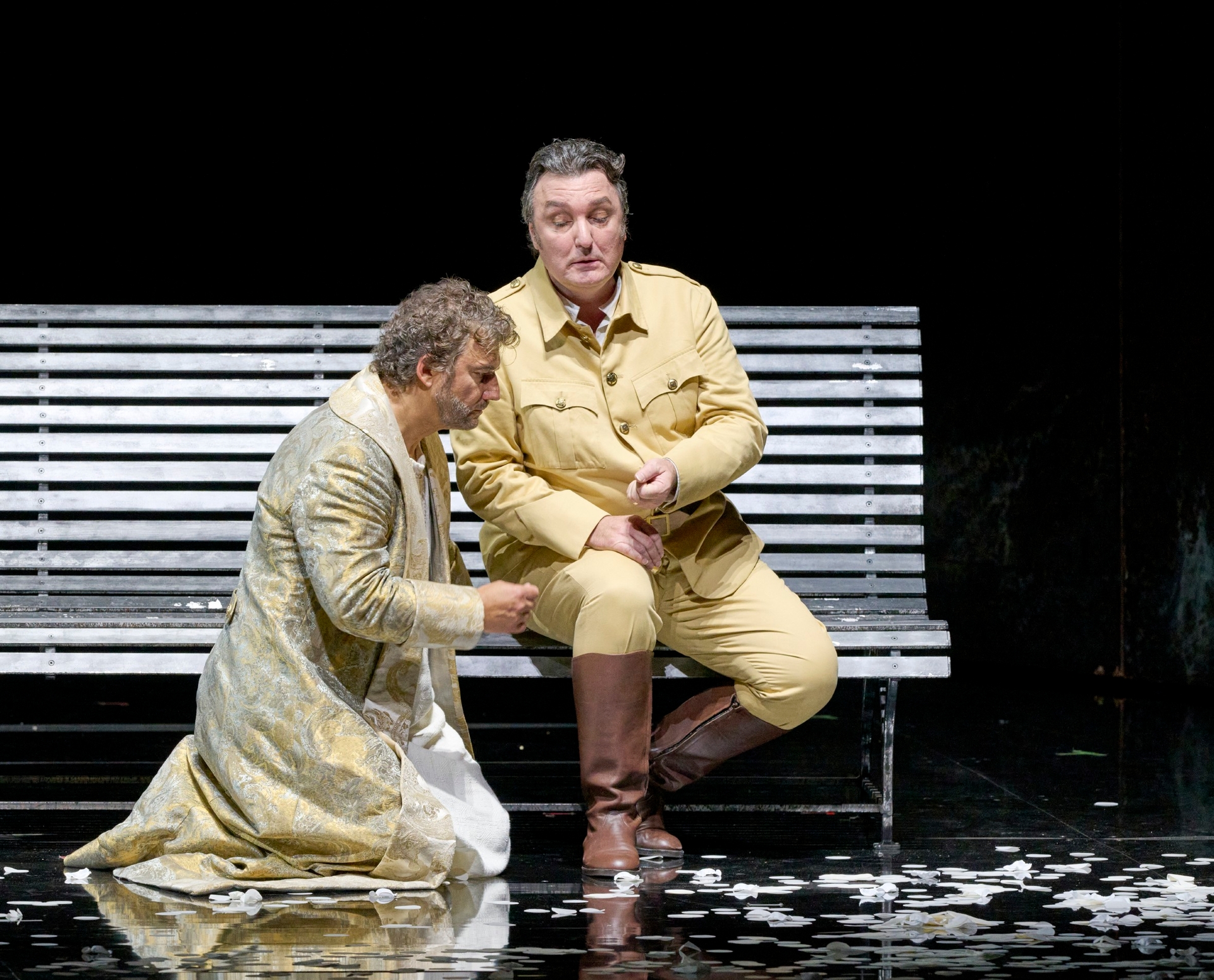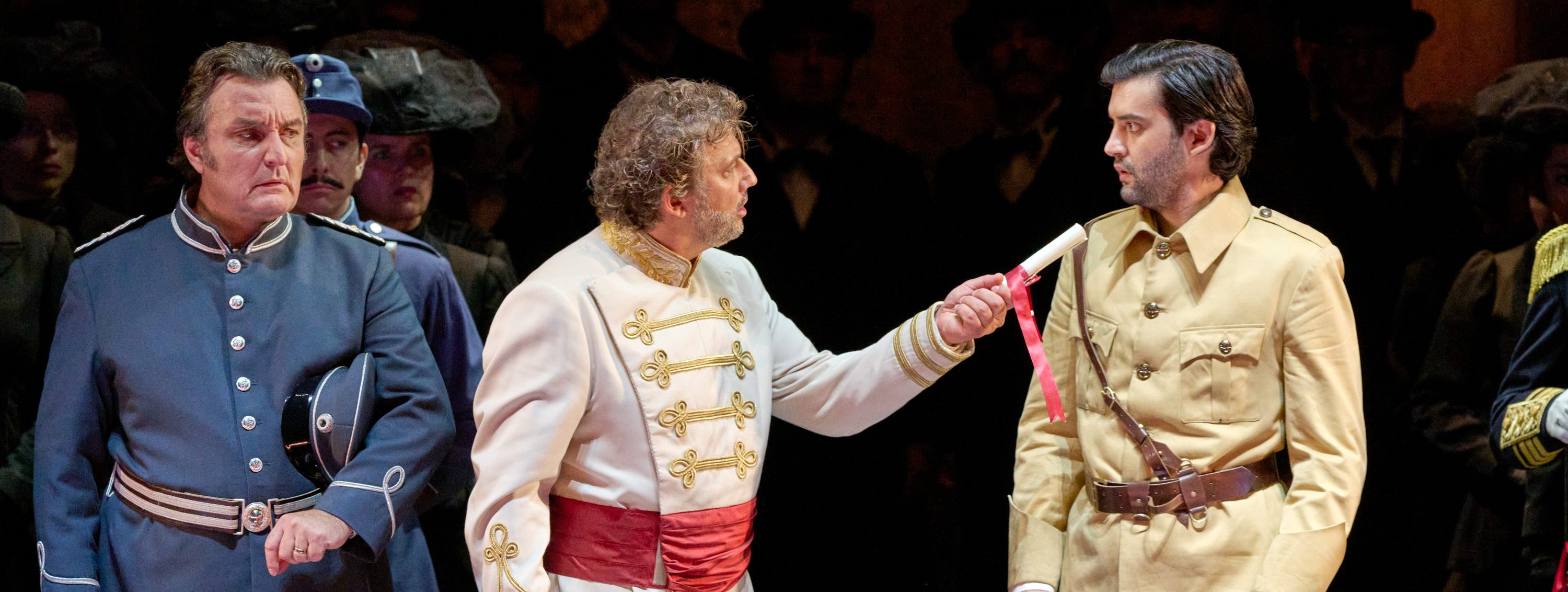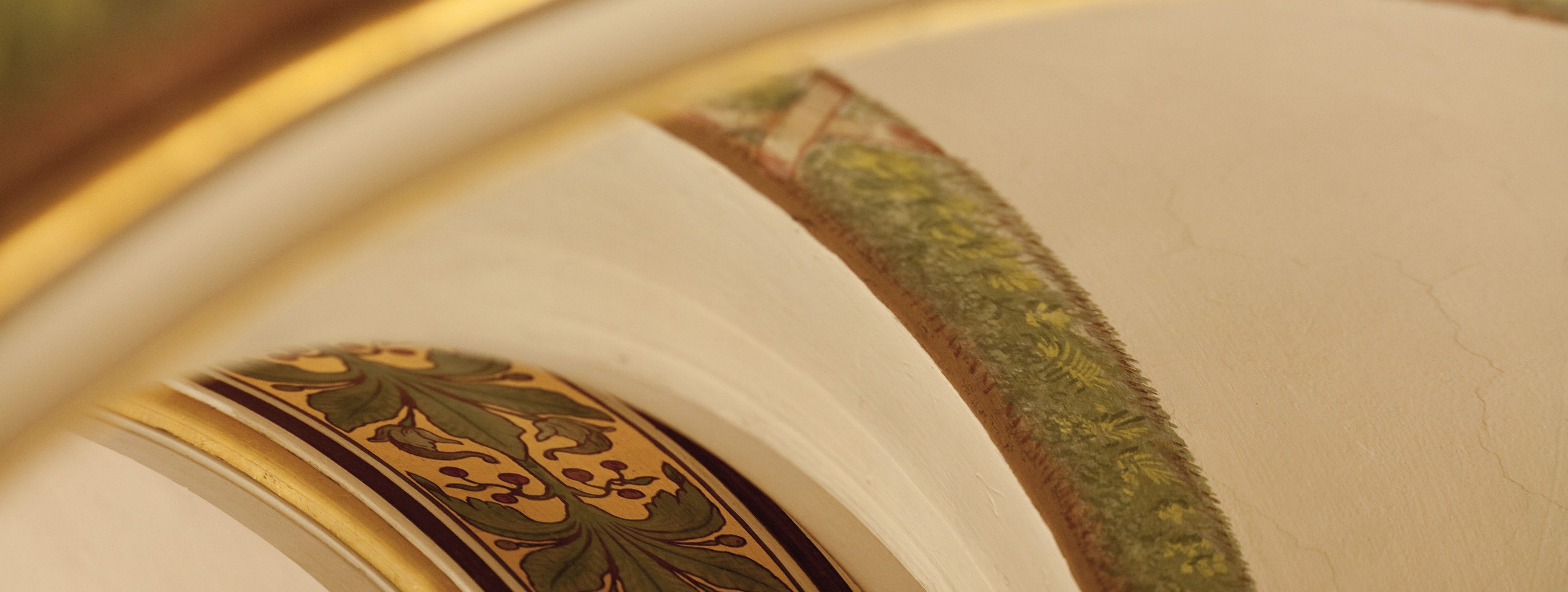
Short Summary
Desdemona has fallen in love with the foreign general Otello and married him against her father's wishes.
Iago, a scheming, malicious ensign of Otello's, wants to destroy him. And he actually succeeds in doing so in a clever way: he is able to gradually convince Otello that his idol Desdemona is cheating on him. It is only after Otello has murdered his wife in a fit of hatred and jealousy that he realizes her innocence. Full of remorse, Otello stabs himself and, dying, bids farewell to his beloved dead wife with a kiss.
Otello
Storyline
Desdemona, the daughter of the Venetian senator Brabantio, loves the successful foreign general Otello, who is in the service of Venice, and secretly marries him without her father's knowledge.

When Brabantio is informed of this marriage by the jealous Roderigo, who is attracted to Desdemona but has been rejected by her father, he sets off in a rage to arrest Otello. At the same time, however, the news is spread that the Turkish navy is heading for Cyprus, which is occupied by Venice.

Otello is appointed commander-in-chief of the defense by the Doge and, as it turns out that Otello was a welcome guest in Brabantio's house, his marriage to Desdemona is also approved - Brabantio has to give in. Iago, one of Otello's ensigns, who was passed over for promotion to captain in favor of Cassio, hates his master and seeks revenge, but manages to gain his trust.

During a thunderstorm, Otello returns to Cyprus from a naval battle as the victor over the Turks.
Iago promises Roderigo that Desdemona will one day be his and incites him against Cassio, whom he gets drunk, leading to a quarrel between Cassio and Roderigo. A tumult ensues, which Otello settles. He demotes Cassio and orders silence. Only Otello and Desdemona remain behind, intoxicated by their shared happiness in love. Iago advises the demoted Cassio to ask Desdemona to intercede with Otello.

As soon as Cassio has left, Iago reaffirms his belief in his own evilness, which he can use to his own advantage, his belief in man's dependence on an evil fate and his disbelief in life after death.
While Cassio appears before Desdemona, Iago stirs up Otello's jealousy as he observes their conversation from afar. When Desdemona then actually asks her husband to forgive Cassio, Otello reacts accordingly angrily.

Iago has Otello eavesdrop on a conversation between him and Cassio, from which Otello can only catch a few seemingly captious fragments. Cassio is holding Desdemona's handkerchief, which Iago has passed to him.
Lodovico, a Venetian envoy, appears to inform Otello of his replacement. When Otello, feeling humiliated and barely able to control his senses, angrily throws Desdemona to the floor a little later, everyone flees the hall in horror. Iago triumphs over the fainting Otello.

In her chamber, Desdemona goes to bed, plagued by dark forebodings. Otello approaches the sleeping woman, wakes her and accuses her of infidelity. She protests her innocence in vain and Otello strangles her. The noise summons Emilia. She clarifies the matter with a handkerchief, whereupon Iago flees. Otello stabs himself and bids farewell to the beloved dead woman with a kiss.
The current production - the eighth at this venue - is by Adrian Noble, who, together with his set designer Dick Bird, moves the action to the beginning of the 20th century in order to shed light on the tensions arising from the opposition between the local population and the foreign Venetian military power against the backdrop of colonialism. Additional sources of inspiration for the production for Noble and Bird were the artistic explorations of Scandinavian playwrights and painters on the subject of jealousy, which Shakespeare once classified as the most dangerous human emotion.
Musically, the setting of Shakespeare's Othello represents the culmination of Verdi's lifelong efforts to breathe the breath of true drama into the standardized schematism of Italian melodrama . The forms and formulas are subordinated to the "whole" that Verdi had been striving for since the 1850s at the latest and are no longer musical ends in themselves, but arise solely from the immanent lawfulness of the drama that authenticates them.
As great as Verdi's enthusiasm for Shakespeare's work was, in the end only three of his operas were based on works by the English playwright - apart from Macbeth , these were his last two works for the musical theater, Otello and Falstaff, both of which he composed on libretti by his former artistic rival Arrigo Boito. The joint work on Otello lasted around seven years before the opera was successfully premiered at La Scala in Milan on February 5, 1887. Within a very short time, Otello was performed all over the world, including in Vienna, where the opera received its Austrian premiere on March 15, 1888 at the Hofoper, now the Staatsoper.
The four-act opera, which was originally to have been titled Iago , has some obvious external differences compared to Shakespeare: for example, the first act of the play was omitted, but Iago's Credo , a self-reflection, was inserted, which makes him appear more clearly comprehensible as a villain than in the play.










